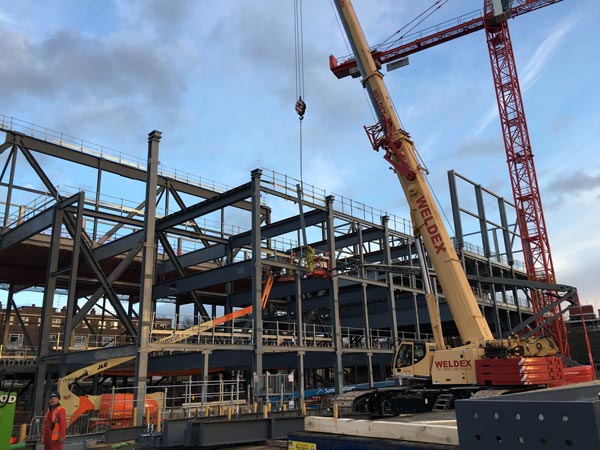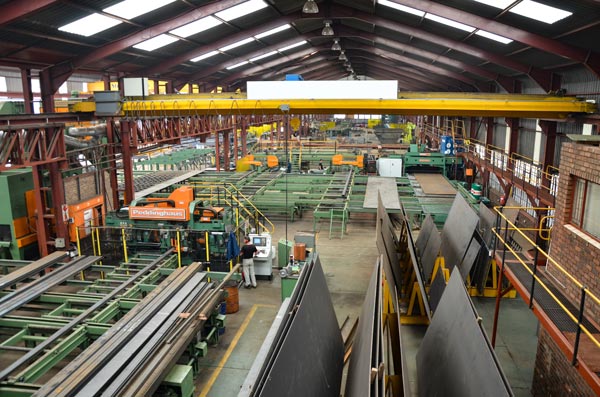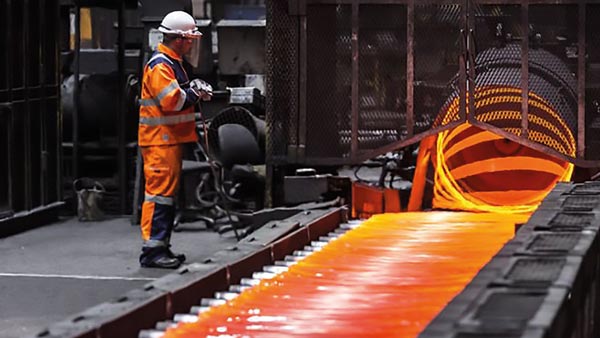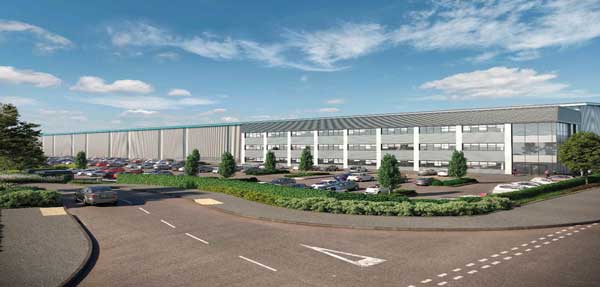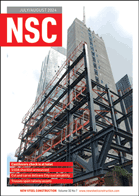Projects and Features
Client confidence strong that steel is still the cost-effective option
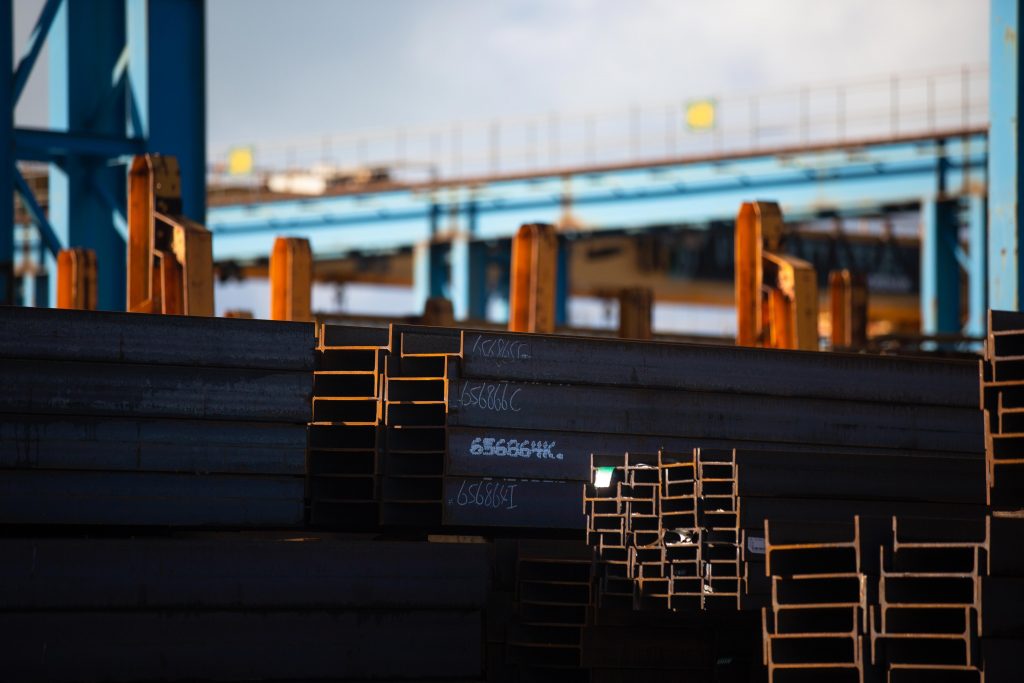
Despite COVID-19, Brexit and a global surge in raw material prices affecting all construction materials, demand for steel-framed buildings and other structures is growing strongly. Nick Barrett reports that key construction clients have held their nerve and are pressing on with investments.
Rising demand for buildings and other structures of ever-increasing size, to be delivered faster than ever before, and as cost-effectively as possible against a background of global inflation for construction-related raw materials, has presented challenges to the entire construction industry. Steelwork contractors have not been immune from this but, thanks to long-term close relationships with clients and a willingness on all sides to cooperate, the storm of rising prices has been ridden and calmer times in terms of price rises are expected.
Steel construction is being relied on more than ever to deliver projects in fast-growing, key sectors of the economy, while providing high sustainability credentials, which will be reinforced by the BCSA’s Net-Zero Roadmap, whose publication is imminent. Steel manufacturers like BCSA industry members Tata Steel and British Steel are also making their own efforts to support the global push to combat climate change.
Despite price rises, construction materials and equipment manufacturers are seeing surges in demand that some have called unprecedented. Fresh demand is coming from new industries, such as the £1,000 Million electric car battery and vehicle manufacturing plant development in Sunderland announced by Nissan in July.
Like all construction materials, steel is subject to the forces of supply and demand and has captured headlines after strong price rises in the first months of this year, with prices doubling over the last eight months. Some headlines may have led people into thinking that there is something unique about steel’s price rises, but other materials including concrete and timber have experienced equally strong rises and supplies of them can be hard to find, as can the labour needed to use them on site.
Steelwork contractors however, say they are confident in their supply chain, and as their workshops are fully staffed by locally-employed specialists there are no labour supply challenges to be met. Site erection is swiftly carried out by small, highly-skilled specialist teams, minimising time spent on site. For steel construction, just-in-time deliveries of offsite fabricated sections – just as modular construction demands – is the normal way of working.
Clients taking a long-term view
Steelwork contractors have had the sometimes-delicate task of explaining to clients why the prices they had hoped for this year are no longer available, but report that most appreciate the reasons and can see that other materials are also rising rapidly, so steel is nothing unusual. Clients are taking a cooperative and long-term approach, with few projects even postponed.
Dean Morcom, Commercial Director of bridge specialist Briton Fabricators, explained the difficulties contractors had to grapple with when prices were changing rapidly: “Some of our suppliers for some steel sections sizes were only able to hold prices for two or three hours at times, which doesn’t work for us.
“Clients understand the situation now, but a few months ago some were sceptical about our explanations. We could have lost one client over it, but fortunately we managed to convince them. With bigger projects we have found that clients are committed to going ahead with their plans. Prices will plateau soon, if they haven’t already, and we will be back to business as usual.”
Mr Morcom is typical of contractors in not blaming steel manufacturers for the problems. “Steelworks had been running at a loss, but they should be able to earn a sustainable profit now. The UK needs them to provide steel for the government’s big infrastructure plans, or they won’t be delivered. The capacity is there, and the price rises mean it can be delivered.”
Caunton Engineering’s Executive Chairman Simon Bingham says he has been impressed by the speed of the market growth this year, and it is undeterred by price rises across all construction materials. “Steel hasn’t been alone in seeing these rises but seems to capture more than its fair share of headlines.”
Mr Bingham says strong demand is coming from new growth markets like data centres, logistics facilities and energy from waste. Student accommodation is also enjoying a resurgence. “What has changed is the demands of the market for sheds to be built faster than before, even though the tonnages increase in step with the growing size of sheds. A lot is related to the growth of online shopping.”
Designs hang on steel’s digital skeleton
Mr Bingham says clients should engage with steelwork contractors earlier for their own security: “They need to procure in line with lead times for steel which we can advise them on,” he says. “There would be other benefits of early engagement. A good steelwork contractor can save a lot of money for clients by pointing out where steel can be saved, where higher strength steel could save weight and money for example. We can often take 15% to 20% of the tonnage out of proposed designs if we are involved early. All of that has to be worth paying a fair price for.”
The benefits of steel that the sector has always stressed all chime with industry ambitions for modern methods of construction including offsite manufacture, modular construction and use of Building Information Modelling. The recycling, circular economy benefits of steel are long established. “Steelwork contractors provide a free BIM model from our detailed steelwork designs, a digital skeleton that the whole design hangs on,” says Mr Bingham.
Steelwork contractors say most clients are now relaxed about the price rises, and all are taking orders for well into next year. Initial consternation has been overcome, helped greatly by having established, strong relationships.
Nigel Moss, Group Development Director of Bourne Group, said steel is in high demand from clients as it is still the economic solution, despite price rises. “It is valued as being the speedy solution and more clients are waking up to the sustainability benefits.”
Mr Moss says clients were quick to appreciate the supply and demand issues that are driving prices and that some stability has been evident recently. “We have no issues now with obtaining steel and supply will catch up with demand, so the world will seem a different place by around September.
“There is no shortage of enquiries, and all the major developers have a continuing appetite to develop, they think long-term and are not put off by price spikes. Their plans and projects span pandemics.”
William Hare Group Sales Director Steve Duffield agrees that the last few months have been difficult as the news of price rises got through to clients, but hopefully the volatility of material increases has begun to slowdown. “Prices in 2019-2020 were historically low, they had to rise to allow steel manufacturing to survive.
“Structural steel is still seen as the best solution by our clients, on cost and sustainability grounds alone before adding on all the other benefits of steel. Flexibility, speed of construction, the design and build services delivered routinely by steelwork contractors, all these advantages are increasingly appreciated.
“We work closely with all our clients to try and mitigate as much as possible the impacts of the material volatility, keeping all project partners aware of the most up-to-date information helps with the strategic cost planning.”
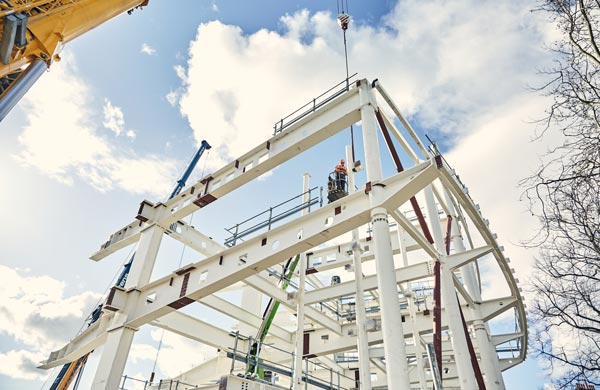
Tried and tested supply chain
BCSA President Mark Denham, Chairman and Managing Director of Elland Steel Structures, says one thing that recent months have shown is that steel has a first rate tried and tested supply chain that is malleable, flexible and responsive. “Sections prices had been low for many years, and they had to go up sometime, although the way it happened wasn’t ideal,” he said. “It was the same for other materials though and clients quickly came to appreciate that the issues are global.
“Steel is still seen as by far the best option for our key markets. We have an excellent sustainability message to deliver, and we have taken early measures to improve our contribution to combatting the climate emergency further. We are second to none in recycling, with some 95% of structural steel recycled.”
Mark Smith, Chief Executive Officer of Billington Holdings, confirms that the level of enquiries is robust and highlights logistics centres, data centres, energy from waste and power as strong growth sectors. The niche film industry market is also growing, whilst infrastructure and the leisure sector are emerging areas.
Mr Smith confirms the growth in London, in particular the refurbishment, extension and remodeling of existing buildings which is all made easier and possible due to the use of steel. “The larger projects benefit from heavy steel construction. We are also encouraged by predicted demand for hospitals and other healthcare facilities.”
These major players in the steel construction market haven’t seen a wave of postponements or cancellations beyond a few weeks, as the market absorbed the implications of the price rises across steel sections, concrete, rebar, timber, cement and all other construction materials. All agree that steel manufacturers had to increase prices amid rising raw material costs and burgeoning demand.
They all report that clients have adapted well to the new price levels and are confident in the future. Mr Smith said: “We have seen this before and clients, suppliers and the steelwork contracting sector will always adapt. Communication along the entire supply chain is important, as well as the cooperative and collaborative attitudes we have all displayed.”
Price rises were long overdue
British Steel’s Commercial Director for Construction, Ben Cunliffe, says global crude steel production has risen by 13% this year which is reflective of a sharp recovery in global demand for finished steel products.
In terms of UK production, British Steel has been manufacturing sections 24-7 since July 2020. And while demand remains at unprecedented levels, it has introduced allocations to ensure a fair distribution to core clients.
Regarding recent price rises, Ben said: “For too long many UK steelmakers have been operating at a loss, so prices had to catch-up with the significant costs associated with the manufacturing process. In addition, the prices of our main raw materials like iron ore and coking coal have risen sharply on world markets, along with international shipping costs. For steelmakers to remain sustainable, we’re compelled to recover these cost increases from the marketplace.”








